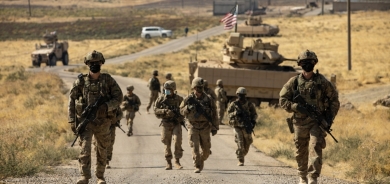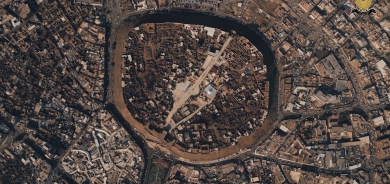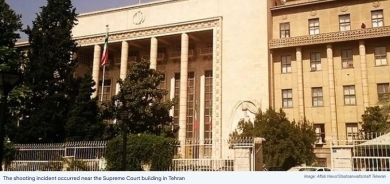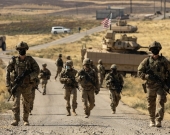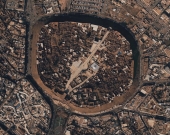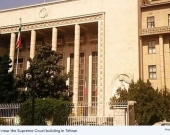Syria's warring sides brace for fresh peace talks

After government and opposition delegates arrived at their Geneva hotels Sunday, they held separate closed-door meetings with UN and Arab League mediator Lakhdar Brahimi.
The Algerian veteran peacemaker, who in late January brought the two sides to the table for the first time since the war began in 2011, was scheduled to hold talks with the opposition at 10:00 am (0900 GMT) Monday
Then at 11:30, he was to meet with the government delegation, helmed by Foreign Minister Walid Muallem, who was also in charge of the regime's team in the first round.
It was not clear if the two sides would sit down together Monday for a meeting under the auspices of Brahimi, nor how many days the round was expected to last.
The so-called Geneva II talks -- spurred by the United States, which backs the opposition, and Russia, a key ally of Syria -- mark the biggest international push so far to end the war.
The aim is to build on an international conference held in the Swiss city in 2012 at which world powers called for political transition in Syria.
That plan was never implemented, however, owing to spiralling fighting in Syria's increasingly sectarian conflict, and deep divisions between the two sides over what a transition would imply.
- Assad insists he will stay on -
The regime of President Bashar al-Assad, whose crackdown on Arab Spring inspired demonstrations in March 2011, insists that his future cannot be up for discussion in Geneva.
But the opposition counters that there is no place for him or his entourage in a future Syria.
Besides appearing far from reaching any compromise on how to craft a transition government, the two sides also disagree on which of a string of other issues should be on the table.
The regime insists the talks focus on fighting "terrorism" -- its term for the revolt, which it says has been fuelled by foreign jihadists and money from the Gulf.
The opposition, in turn, wants discussions to address regime actions such as starving out opposition-held areas, raining explosives-packed "barrel bombs" from helicopters, and deploying fighters from Hezbollah, the Iranian-backed Lebanese Shiite militia.
The Syria war has claimed more than 136,000 lives and driven millions from their homes, many of whom have fled to neighbouring Turkey, Lebanon, Jordan and Iraq, raising fears of a regional spillover of the conflict.
The first round of talks, which started with an international conference in the Swiss city of Montreux on January, then shifted to the UN's European base in nearby Geneva.
The only tangible result from the first Geneva round, which ran from January 24-31, was that civilians could be evacuated from opposition-held areas of the central city of Homs.
Inhabitants of the districts have faced daily bombardment and have been reduced to living off little more than olives and herbs after over 600 days under siege.
But with both sides trading blame for the situation, there was no progress on an evacuation or aid deliveries into the embattled zones during the Geneva talks.
Evacuations began last week, and picked up pace Sunday when 420 of the 3,000 trapped people were able to leave.
The regime and rebels accused each other of violating a UN-brokered truce for besieged districts of Syria's third city that began on Friday.
Homs, much of which has been reduced to rubble, was dubbed "the capital of the revolution" by activists before a bloody 2012 offensive by regime forces recaptured much of the city.
AFP


